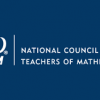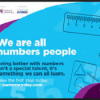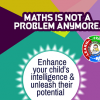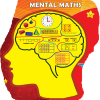- Empty cart.
- Continue Shopping
Every pupil needs a good mathematics education

“Mathematics: made to measure emphasises the importance for every pupil to have the best possible mathematics education.”
The report highlights a dramatic increase in the take-up of A level and further mathematics, and shows that the youngest children are doing better. GCSE and A-level results continue to rise as a result of the sustained efforts of teachers and students.
But the report finds 3 key areas in primary and secondary mathematics in schools in England, which need to be improved:
- firstly, not enough is being done to help pupils catch up who fall behind early; the 10% who do not reach the expected standard at age 7 doubles to 20% by age 11, and nearly doubles again by age 16
- secondly, inspection evidence shows that pupils in lower ability sets and younger pupils received the weakest teaching; inspectors regularly saw outstanding and satisfactory teaching, and sometimes inadequate too, within an individual school
- thirdly, lots of the brightest pupils do not fulfil their potential when they get to secondary school; 37,000 of the highest attaining primary school pupils got no better than a grade C at GCSE in mathematics last year; schools which routinely enter students early for GCSE mathematics are hindering their ability to reach the highest grades
Her Majesty’s Chief Inspector, Sir Michael Wilshaw said:
I want all children to have the best education they can and mathematics is a fundamental part of that. It is essential for everyday life and understanding of our world. Too many pupils do not fulfil their potential, including many of the most able, and those who get off to a poor mathematical start or fall behind in their learning never catch up.
We know it can be done. Over half of the schools visited in the survey were judged to be good or outstanding in mathematics, although even in these schools some inconsistencies in the quality of teaching need to be tackled.
We must all play our part to ensure that all pupils receive the best possible mathematics education. Ofsted will support schools to learn from the best, those with the best teaching and assessment and a well organised, mathematically rich, engaging curriculum.
Neil Carberry, CBI Director of Employment and Skills, said:
Basic maths is essential for everyday life, as well as a key skill required in the workplace. That’s why it’s so troubling over a third of pupils did not gain grade C in GCSE maths in 2011. Employers want all staff to be numerate, which means being able to confidently handle numbers, work out percentages and make estimates. We strongly support the Ofsted recommendation to encourage more young people to continue maths education post-16.









test 2
test